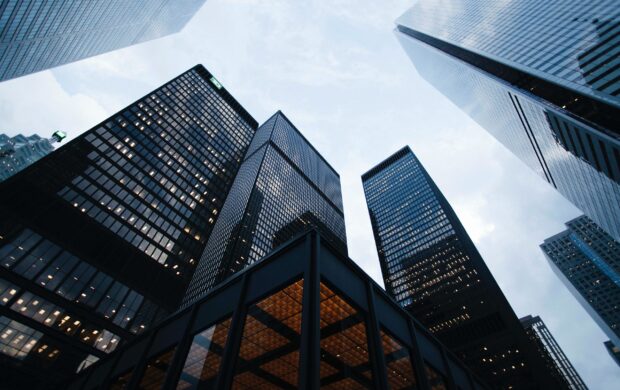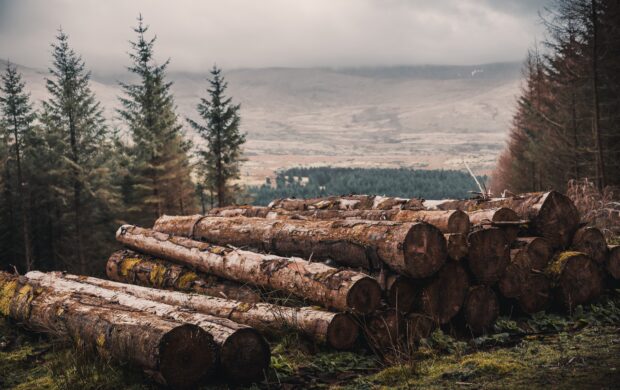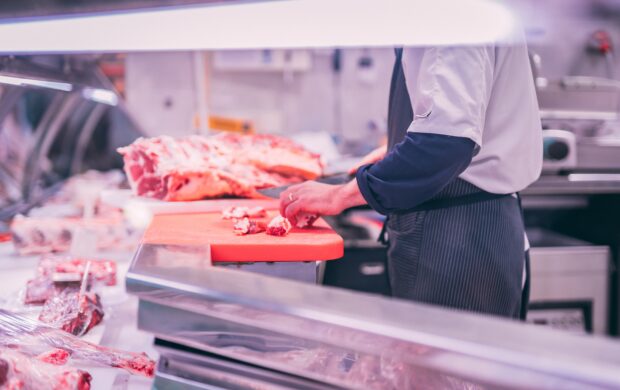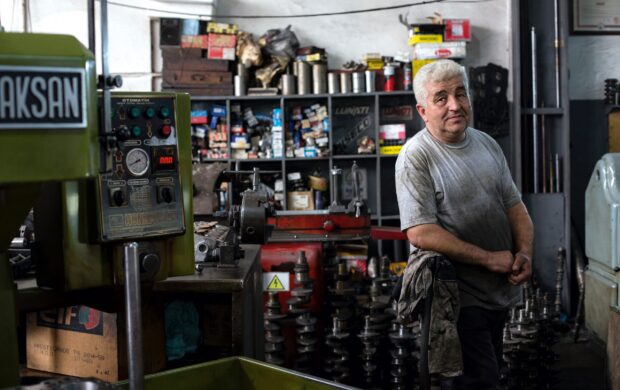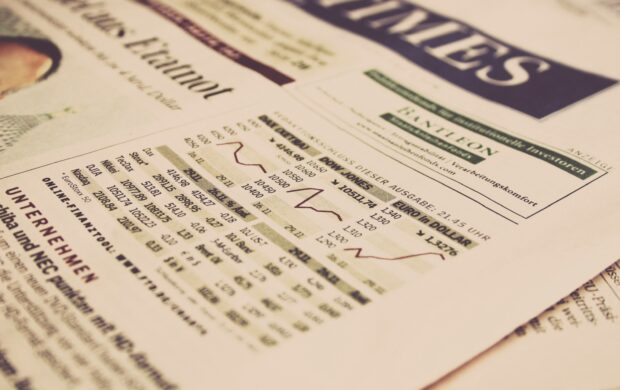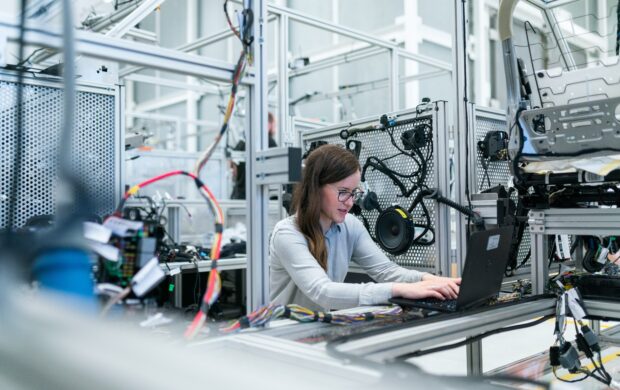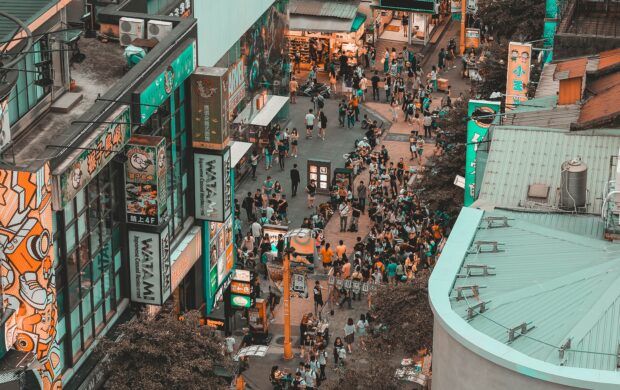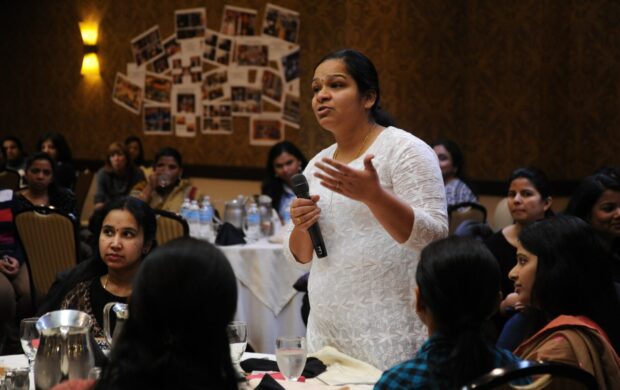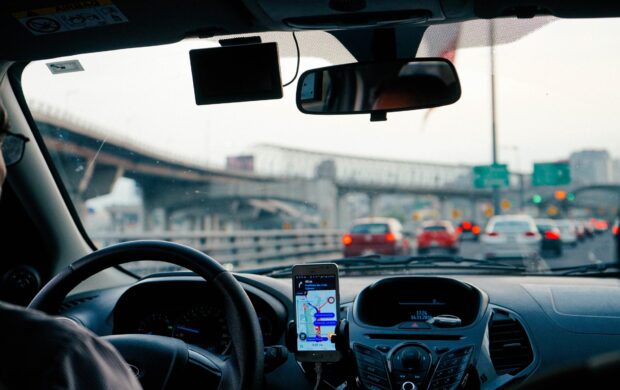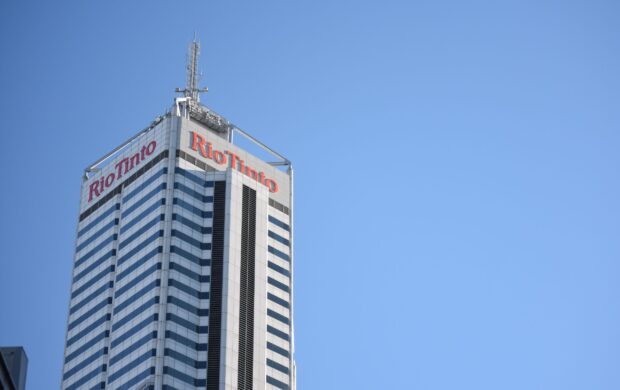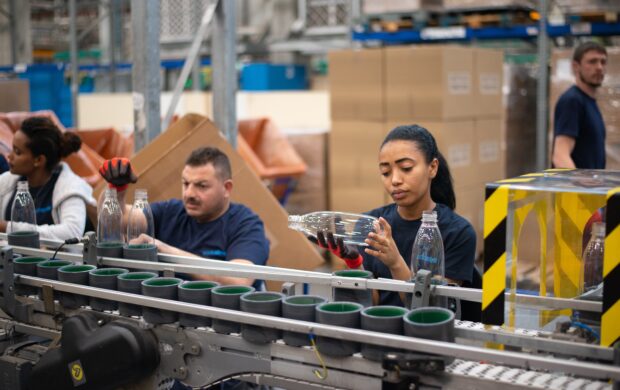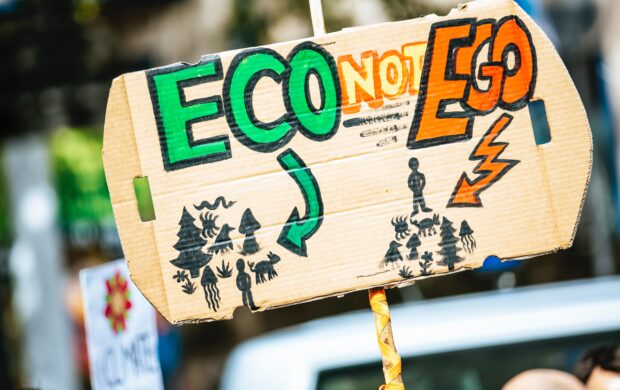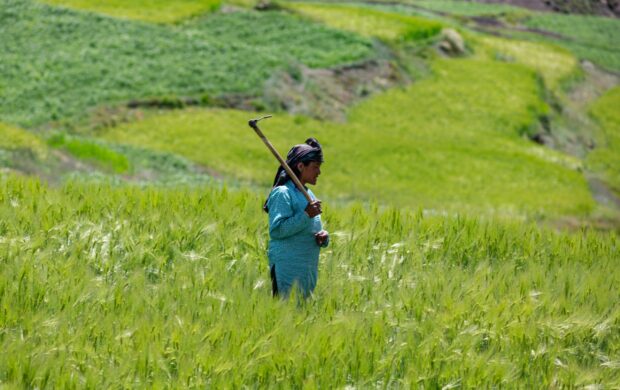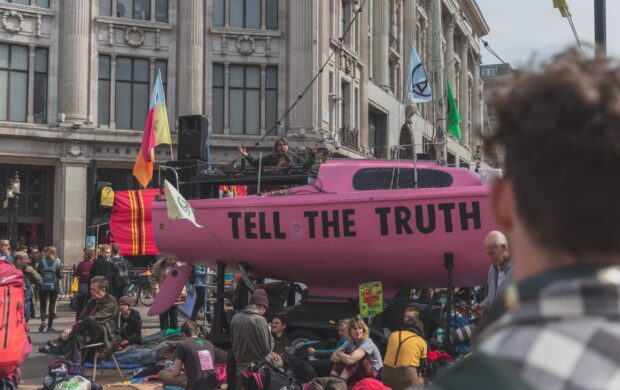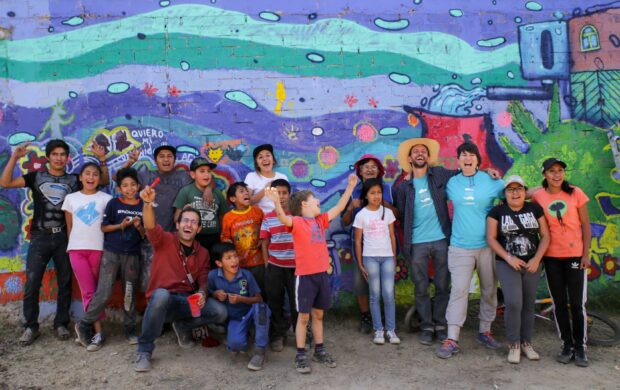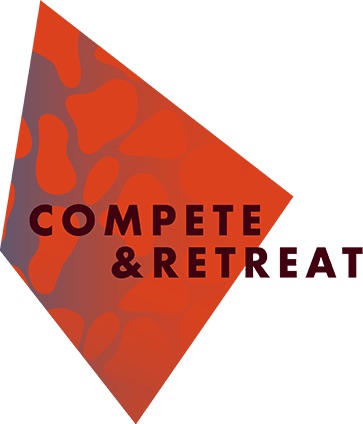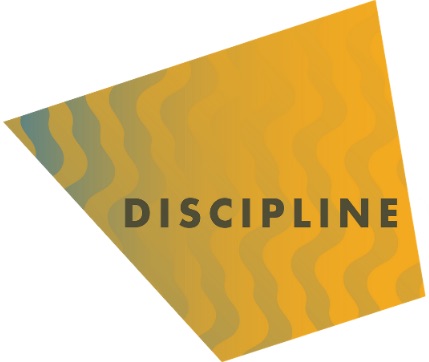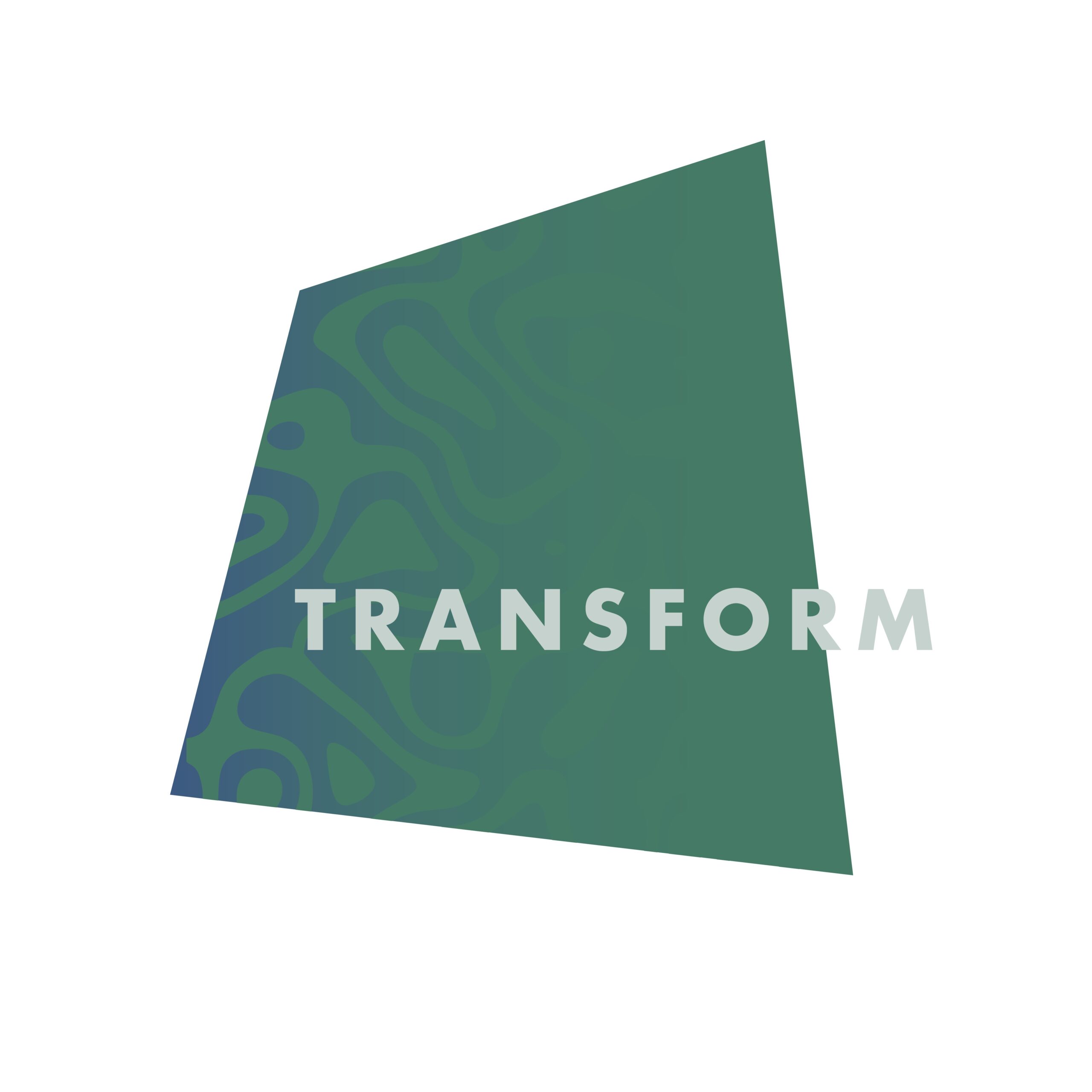From system shock
to system change
– time to transform
The Future of Sustainability
Report 2020
Download as PDF
We live in hugely uncertain times. COVID-19 has shocked the very systems on which we rely, kickstarting a decade already heading for extreme turbulence.
We are set to see wide-ranging change and transitions – both positive and negative. Come 2030, will we find ourselves in a just, resilient and sustainable world? Or one in which we witness ever more destabilising shocks?
Forum for the Future’s latest Future of Sustainability report, From System Shock to System Change – Time to Transform, explores the five key dynamics that lie at the heart of these transitions. It considers the interconnected nature of human and planetary health, and reveals four trajectories emerging from the COVID-19 crisis – only one of which will deliver the just transition urgently needed if we are to avert the worst of the social, climate and biodiversity crises we all face.
What we found: The Five Key Dynamics Defining the 2020s
‘Dynamics’ take into account the:
-
latest signals of change – social, political, economic, environmental and political ideas, developments or innovations able to disrupt current norms;
-
trends these signals create
-
interactions between trends – with two or more combining in clusters to potentially shift whole systems.
There are five dynamics we should all take note of.


Biosphere
breakdown
Every living thing on Earth is dependent on a healthy, functioning biosphere. This is the global ecological system that integrates all life with the natural systems which enable it to thrive – such as the climate, air currents and water cycles. The whole history of human civilisation has been played out within a stable biosphere, allowing us to flourish and grow – but this stability is set to come
crashing to an end.
The planet’s living systems are under severe stress from the destruction of biodiversity, rampant mismanagement of freshwater resources and climate breakdown. These three, deeply intertwined systems are in crisis, and as they fall apart, we risk crossing irreversible tipping points of no return – thereby entering a radically unstable biosphere unlike anything seen in the past hundred thousand years.
How can we seize the opportunity to protect the planetary systems we all depend on?
What we’re seeing:

Economic crisis
and reform
Our current global financial system is severely imbalanced, vulnerable to shocks and low on monetary tools to tackle them. It also misallocates resources at extraordinary scale due to an economic model focused on short-term profits and growth almost at any cost. This systemic misallocation exacerbates wealth and power inequalities. It also multiplies the risk we face from biosphere breakdown and severely hampers attempts to prevent it.
This is the backdrop against which the response to COVID-19 has played out. Governments and businesses continue to act quickly and decisively to the public health crisis. The challenge now is for them to respond to climate and biosphere breakdown with equal urgency. This starts by ensuring stimulus packages for post COVID-19 recovery help tackle – rather than worsen – the crisis.
How can we create a resilient economic system that delivers social and environmental value?
What we’re seeing:

Tech & Governance
Nexus
The digital revolution is transforming our economies and our lives at exponential rates. Algorithms are revolutionising how our personal data is held – and profited from. Automation is gaining momentum across multiple sectors and industries – from insurance to transport. The power and potential of artificial intelligence is growing, everyday.
The benefits of a booming tech industry are undeniable: newfound opportunities to tackle environmental issues, speeding the adoption of the circular economy, improving healthcare, preventing fraud – and many, many more. But so too are the unintended consequences.
As the power and wealth of major tech corporations grows, what are these unintended consequences? How are governance systems absorbing and responding? And what does it mean for our future?
Will technology lock us into an unsustainable trajectory or enable a regenerative future?
What we’re seeing:

Equitable transitions
82% of the wealth generated globally in 2017 went to the richest 1%, while half the population still live on less than $5.50 per day. Across much of the world, the gap between rich and poor and across generational, racial and class lines is widening.
In disproportionately impacting the poor and the climate crisis is compounding the problem. The UN has warned that climate change threatens to undo much of the progress made in development over the last 50 years and create a world in which the rich alone are able to buy their way out of rising heat and hunger.
Add to this, COVID-19 continues to sharpen deep, systemic and long-standing inequalities. We face a reckoning on social injustice, but where can we focus efforts to intervene at scale and at pace?
How can we ensure a just transition to the future we want?
What we’re seeing:

Regenerative
approaches
We live in extraordinary times, when the interlocking crises facing humanity can seem overwhelming in their complexity and impact. Yet there is hope emerging from people and organisations that are embracing and experimenting with ‘regenerative’ approaches – challenging us to work with rather than against, the power of living systems.
While ‘regenerative’ approaches are not new, the systemic nature of the world’s issues is placing a newfound urgency on us all to adopt them, and quickly.
Are regenerative approaches the critical unlock to the challenges of the decade ahead?
What we’re seeing:
What next?
Emerging trajectories that may shape our future
In our immensely disrupted world, there are countless ways forward. Among them, we see four trajectories emerging from the radical change brought by COVID-19, each underpinned by a different mindset or set of values – and with both positive and negative aspects.

The decisions we make in the next six to 18 months will determine the future of our society, our economy, and the planet.
The future is not something that happens to us, but is something that we can actively create with every action we take, and with every choice we make.
We believe that the Transform trajectory must become the dominant version of our future if we are to deliver the systemic change needed to solve our inequality, climate, biodiversity and public health challenges.
This necessitates us all changing our views of how the world works. It also means redefining the goals of the systems we operate within.
Businesses, investors, government, civil society organisations and the philanthropy sector must step up to create transformation.
With thanks
to our partners
We would like to thank our valuable partners whose support and insights made the Future of Sustainability possible:
-
“Sustaining our natural resources is no longer enough, we need to play an active role in regenerating them. That’s why General Mills is on a journey to make a meaningful difference through regenerative agriculture. While we are encouraged by our progress thus far, we can’t change the climate trajectory alone. This work will require a concerted effort from us all and we encourage business leaders to use this report as a launchpad to join the movement.”
-
“The actions we take today have a profound influence over tomorrow. By embracing the ‘Transform’ trajectory, and using our collective voices, we have the opportunity to inspire action and truly ‘build back better’. Together, working across sectors, we have a greater chance of innovating and accelerating the work and creating positive, equitable and lasting change for people and the planet.”
-
“It’s clear from this report we need bold and ambitious change. From the farmers who grow our ingredients, to the people who buy our products, we need to all work together to create a just and equitable society in which both people and the planet can thrive.”
-
“This report is sending a clarion call for business, government and civil society alike to act boldly and create the future we want to see. In this moment of disruption, business can and needs to step up and take the lead on changes that will not only keep people safe and healthy, but also improve and renew the communities, landscapes and economies that they operate in. We are clear that at Olam the time has come to Reimagine Agriculture, this report makes it clear that we need to do that within an ambition to Reimagine our Future.”
-
“This report does a great job of identifying the trajectories which the world could take from here and the impact these will have on sustainability. The time to act is now, to take a transformational trajectory, as the world sets its path to recovery post-COVID-19. It is a great opportunity to protect society and the environment as we rebuild. The report outlines the many practical actions we can take to seize this opportunity.”
-
“Over the past eight months, we have seen profound impacts on human health, the global economy and to society at large, resulting in a unique moment to transform the future for generations to come. As we sit at the starting line for a decisive decade, we are committed to a path forward that balances well-being and social justice, while safeguarding the natural systems that are just as essential to helping people live better lives.”
-
“It’s only through urgent, bold action that we will be able to tackle the dual crises of deepening inequality and climate breakdown. This report is calling for new, regenerative approaches that can fundamentally change how we create and distribute value in the economy. And we, at Laudes Foundation, are committed to supporting brave action by business, government, and communities to create this more equitable future and protect the natural systems on which we depend.”
